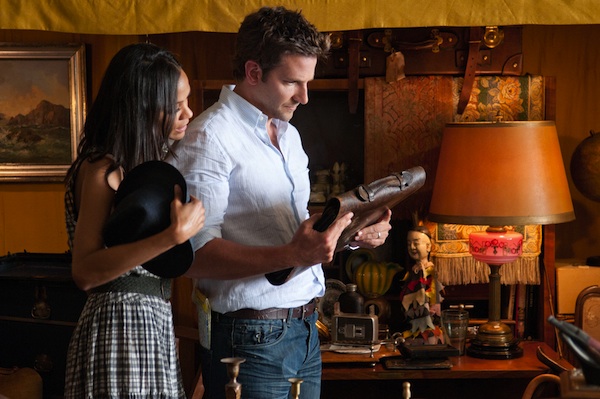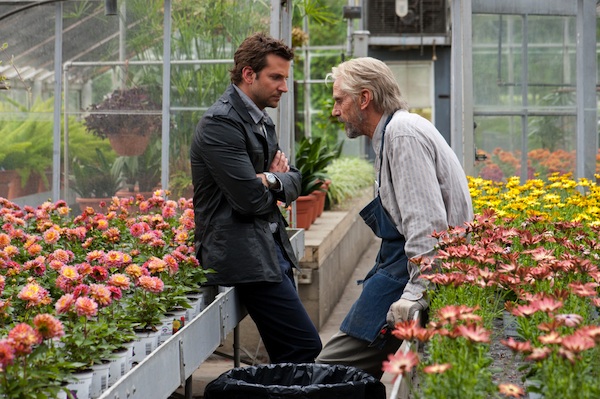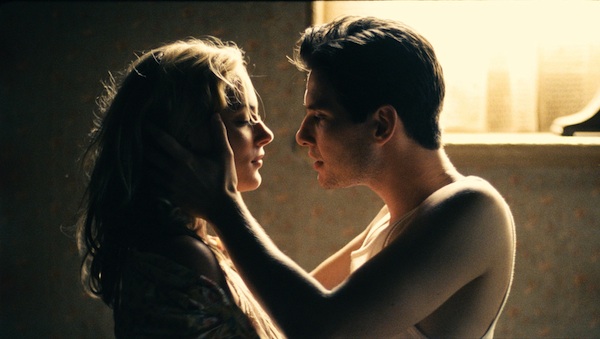A writer’s words can project their soul onto the page, for the world to embrace, admonish, or when such words reveal a love story beyond measure to provoke a wealth of emotion. Passing off another’s work as your own is the cruelest act a writer can commit; in The Words, Bradley Cooper’s character Rory Jansen does just that. But the truth behind the motivation of Rory to use another man’s story in order to become a published writer is not simple. The complexity of Rory’s tale tests morality, as it also reveals the truths behind the fact that having told a story may be more important than who actually wrote the story. The Words is a complicated dialogue on morals, on truth, and most of all a love story that makes the aforementioned inconsequential.
The Words is structured as three separate stories, with two being presented as those written by another character in the film. The movie is itself a novel on screen, yet surprisingly it was an original script written by co-directors Brian Klugman and Lee Sternthal. The narration is done by The Old Man (Jeremy Irons) who is a fictionalized character by the actual narrator novelist Clay Hammond (Dennis Quaid) who is reading his new novel at a special event over the course of one evening. The main character of Clay’s newest novel is Rory, a struggling novelist who comes across a manuscript while on his honeymoon with Dora (Zoe Saldana) in Paris hidden in the folds of an old briefcase she purchases for him at an antiques shop. The story Rory discovers is one of the greatest love stories he has ever read; full of emotion, longing, pain, devotion, and every other adjective that would describe a timeless love story. It is this story that makes up the third part of The Words tale. It is set in post-war Paris, France where an American soldier falls in love with a French girl, only to have a glorious romance that ends tragically, as the best always do. Weaving in and out of the three stories structures The Words around the basis for the entire film, the complicated choice made by Rory and the abject consequences to publish the found love story as his own.

It must be noted that Rory is a good writer, he just has not written a great novel yet that can be marketed to the public. His decision to publish the found manuscript happens by way of admiration, the look in a woman’s eyes after reading something profound can make a man do things he would not normally do to keep her believing he is able to create such greatness. The Words is not a story about why Rory publishes the novel as his own, that is plainly seen and not in need of great analysis. It is the living with knowing that another man’s creativity, success, and skill have given you everything you’ve ever wanted, and yet nothing you feel you deserve. Rory is haunted by the truth, and the truth comes to life when the writer, The Old Man, pays Rory a visit to tell his story–the story behind the manuscript Rory claims as his own.

By the time The Old Man (Jeremy Irons) appears on screen and begins to tell the story of The Young Man (Ben Barnes) and Celia (Nora Arnezeder) falling in love interest in Rory’s plight or Clay’s narration mingled with the insistent questioning by a student as to who he “really is”, Daniella (Olivia Wilde), is all but lost. The moral questions The Words raised are forgotten as the viewer is swept up in the silent rendition of The Young Man and Celia’s love story as presented by The Old Man’s memories. Jeremy Irons’ performance though does not let one forget how this one particular memory, his story, is of the greatest importance to him. As well as how painful it is to recite. That is where The Words hooks itself into the viewer, never letting go until the credits role because The Old Man is not out for vindication, his motivations for coming forward to Rory are far more intricately unplanned.

The Words is full of complications: in love, choices, and acceptance. The moral questions it raises remain unanswered, as only an individual can truly justify whether Rory was right to make the choices he made through their own judgment based on their own beliefs after the entire story is drawn out. The weakness in The Words is the seemingly real story of novelist Clay. The clear sense that the writers want the viewer to assume who Clay is, and the building of a is-he or isn’t-he mystery is far too cliched a twist to fall in line with the rest of the film. The Words is not a standard story, and the twists are not predictable; even if the love story is drawn out of common romantic lore. But Clay’s story is flawed with the need to fill in gaps, to make Rory’s story even more meaningful, when it need not be attempting such complexity. The interweaving of The Old Man and Rory’s stories are full of more than enough to carry The Words; Clay’s merely acts as disrupting more than once.
Even still, The Words grabs the attention of the viewer, through the romance, the pain, and the undeniable sense that this small movie made by two independent filmmakers (Brian Klugman and Lee Sternthal), executive produced by the Sexiest Man Alive (Bradley Cooper), starring two actors who never speak a line of dialogue (Ben Barnes and Nora Arnezeder), and featuring the amazing talent of Jeremy Irons in a role worthy of his talent for emotional depth just may be one of the most important movies ever made when it comes to creative rights, even if it is overreaching its own capabilities. The Words makes use of all of its resources to never answer a single question as to why any character makes the choices they make, a daring decision by the filmmakers and a delightful twist for a viewer who wishes to delve deeper into the conscience of man, while being swept up in romance.
